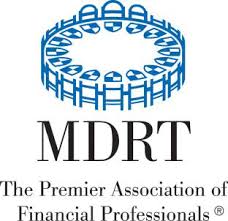Life Changes Due To Disability
Becoming disabled due to an injury or illness can bring about a whole host of changes in your life. This is especially true if you are unable to work and earn an income – even for just a short period of time.
The term “disability” can actually cover a wide range of functional limitations. These include physical, mental, intellectual, and even sensory. For some, incurring a disability could mean just a short-term period of rehab, whereas for others, becoming disabled will require a major life adjustment – physically and financially.
Will You Become Disabled?
While everyone is aware that disabilities can and do occur, most people automatically assume that they only happen to “other people.” Because of that, many individuals and business owners don’t properly plan for becoming disabled. Unfortunately, that can end up being a costly mistake.
According to the U.S. Centers for Disease Control and Prevention, roughly one in four U.S. adults were living with a disability in 2018. That equates to about 61 million people, just in the United States alone, who have some type of disabling condition.
In fact, a 35-year-old has a roughly 50% chance of becoming disabled for at least 90 days before he or she reaches age 65, and about one in seven people who are between the ages of 35 and 65 can anticipate having a disability for five years or more.
So, even if you are young and healthy right now, there is no guarantee that an unexpected illness or injury won’t strike in the future. With that in mind, it is always best to be prepared. One of the best tools for alleviating the financial concerns that can come with a disability is disability insurance. Learn more about how you can get a quote for disability insurance coverage. <link to How to Get a Disability Insurance Quote>
How Much a Disability Costs Individuals and Businesses
In addition to the physical and emotional challenges that a disability can present, becoming disabled can cause significant financial strain as well. Regardless of how much you earn, most people have financial obligations that consume about 75% of their income. These can include a monthly mortgage or rent payment, utilities, food, and other necessities.
If you’re a business owner, your financial responsibilities can increase even more with monetary commitments on things like overhead and utilities, inventory, supplies, and employee salaries.
Just how much can a disability cost?
There are actually both direct costs and indirect costs when it comes to disability. As an example, direct costs include the added expenses that people with disabilities – as well as their families – can incur trying to achieve a reasonable standard of living.
For instance, in addition to finding a way to pay your everyday living expenses, new research has found that many people who live with a disability incur additional costs, too, such as medical equipment and supplies, medication, costlier modes of transportation, cleaning and laundry services (that may not have otherwise been necessary), assistive services, and copays on doctor visits and necessary medical procedures. For some, these costs can add nearly $7,000 to their annual expenses.
Indirect costs can come in the form of stress and social isolation. And, while it is difficult to quantify an actual dollar amount here, having access to monetary resources can help to alleviate these costs – at least somewhat – by allowing you to still pay for things you need. This is where a disability insurance policy can help. Learn more about what disability income insurance is. <link to What is Disability Income Insurance>
Keeping Finances on Track If You Become Disabled
It is estimated that the employment rate for those who have a severe functional disability is under 28%. This equates to a large majority of disabled individuals earning little to no income throughout the duration of their impairment.
While Social Security Disability Insurance is available to people of all income levels, benefits are only payable if an individual has worked and paid into the system for at least ten years – and at that, this program only pays an average disability income benefit of $722 per month.
On top of that, given the extremely strict criteria required for qualification, only about 35% of those who apply for Social Security disability benefits actually qualify. Here, for instance, according to the Social Security Administration, the disabling condition “must significantly limit your ability to do basic work such as lifting, standing, walking, sitting, and remembering – for at least twelve months.”
In addition, if you are unable to perform the work that you did in the past, Social Security will look to see if there is other work that you may still be able to do, despite your condition. And if there is, you will not likely qualify for these benefits.
Because of its extremely strict qualification criteria – as well as its low average dollar amount of benefits – it is recommended that Social Security disability should not be considered a viable source for replacing income in the event of a disabling condition.
In some cases, money from an emergency fund could be used for paying ongoing living expenses. But at some point, these funds will run out. Likewise, retirement accounts and other investments are typically earmarked for other needs. So, by taking funds out of these account, you could essentially be sabotaging future financial needs.
Therefore, these too are not viable options for keeping finances afloat if a disabling illness or injury strikes. However, a disability insurance policy can be. An individual disability insurance policy can be “customized” for your anticipated needs, in both the long- and short-term, if you should become disabled.
Not all disability insurance policies are the same, though, and these policies can have many moving parts. So, it is best to have a good understanding of how disability insurance coverage works before you move forward with the purchase of a policy. Learn more about what disability insurance coverage does. <link to What Does Disability Insurance Coverage Do?>
Preparing for the Financial Aspect of a Disability
Although there is no way to predict whether or not a disability will strike, there are ways to prepare – at least financially – through the purchase of disability insurance. A disability insurance policy <link to Disability Insurance: How It Works and Why You Need It> can provide you with income replacement so that you can continue to pay your ongoing living expenses – something that a regular health insurance policy won’t do.
Learn more about disability insurance, how it works, and why you need it. <link to Disability Insurance: How It Works and Why You Need It>

 Speak with an experienced advisor!
Speak with an experienced advisor! 





